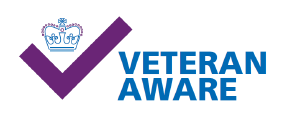Job summary
- Main area
- Orthopaedic Physiotherapy
- Grade
- NHS AfC: Band 6
- Contract
- Permanent
- Hours
- Full time - 37.5 hours per week (Contributes to a 7 day working rota.)
- Job ref
- 370-CSS6THE-246-A
- Employer
- Warrington and Halton Teaching Hospitals NHS Foundation Trust
- Employer type
- NHS
- Site
- Warrington and Halton Hospital sites
- Town
- Warrington
- Salary
- £35,392 - £42,618 PA
- Salary period
- Yearly
- Closing
- 30/07/2024 23:59
- Interview date
- 03/09/2024
Employer heading

Specialist Orthopaedic Physiotherapist
NHS AfC: Band 6
Job overview
We are seeking experienced Physiotherapists to work within a multi-disciplinary Orthopaedic team, delivering therapy to patients on both the elective orthopaedic and trauma sites. You will be able to demonstrate clear evidence of orthopaedic knowledge and experience of working within this field. You will also be experienced in the supervision of less experienced qualified and unqualified staff.
The service is progressive, and you will have an opportunity to be involved in the service developments.
****Please be aware that interviews will not be taking place until September 3rd ****
Main duties of the job
Utilise specialist physiotherapy skills in the assessment and treatment
of your own caseload of patients to develop specialised programmes of
care.
Work within the in-patient Orthopaedic team and providing specialist
therapy advice.
Supervise less experienced staff and students.
The Orthopaedic Therapy service is delivered over 7 days, and as such this post will be required to participate in our existing weekend and extended hours service.
Working for our organisation
Warrington and Halton Teaching Hospitals NHS Foundation Trust is a caring and compassionate organisation that is both ambitious and innovative. We are committed to delivering the best outcomes for our patients and providing a positive experience of our staff. We aspire to be outstanding for our patients, our communities and our staff and are committed to being a great place to receive healthcare, work and learn.
Straddling the neighbouring boroughs of Warrington and Halton we are part of the Cheshire and Merseyside Integrated Care system. Our hospitals are ideally situated to meet the growing healthcare needs of the 330,000 population of these boroughs.
Warrington Hospital is home to our emergency, critical care and maternity services, Halton Hospital is focused on elective procedures and the Runcorn Urgent Treatment Centre, although many services are offered at both sites and in community hubs.
A CQC-rated ‘good’ organisation with ‘outstanding’ features, we are working towards university hospital status, having achieved teaching hospital status in 2019.
Our workforce of nearly 5,000 across both sites comprises more than 50 nationalities. We strive to be an equal, diverse and inclusive employer, which is recognised as a pioneer in its equality, diversity and inclusion work. The Trust is proud to have achieved numerous external accreditations and is working towards achieving the Anti-Racist Organisation Framework, recognising the importance of anti-racism in all that we do.
Detailed job description and main responsibilities
Main tasks and responsibilities:
Patient/Clinical Care:
- To manage your clinical caseload with autonomy, guided by policies, procedures, codes of practice and departmental working practices.
- To undertake a comprehensive assessment of patients including those with a complex presentation, using investigative and advanced analytical skills and clinical reasoning.
- Using developed knowledge and experience to make a therapeutic diagnosis of a patient’s condition and interpret clinical findings and documentation to formulate a comprehensive specialised programme of care, including decision making about the most appropriate treatment options. This may be for patients with a wide range of diagnoses and problems and will need regular updating to ensure to ensure optimum therapeutic outcome. For example, where self-referral occurs, clinical diagnosis is made, and a programme of care is developed.
- To supervise less experienced staff and students in the provision of patient care.
- To provide planned and spontaneous advice to patients/clients, junior staff, staff of other disciplines, formal and informal carers, and relatives
- To have highly developed physical skills for the treatment of patients. This may involve the use of specialist equipment, materials, and tools, for example for splinting, computers, equipment for activities of daily living.
- To be responsible for maintaining and managing accurate and comprehensive treatment records in line with professional and local standards.
- To frequently exert physical effort in cramped conditions and sustained postures for periods of up to 40 minutes several times a day. This would include moving patients as part of their treatment or moving equipment.
- With every patient, concentration is required to listen, observe, evaluate, document, plan and act on information gathered.
- To deal with distressing or emotional situations, such as dealing with patients and families who are distressed due to acute or a terminal illness, those who are elderly, those with special needs and those experiencing prolonged ongoing deterioration.
- To have daily contact with patients’ bodily fluids, odours, dust, etc.
- To participate in weekend working and extended hours as part of the service rota.
- To fully implement the trust policies around infection control in order to protect patients.
- To understand the requirement to contribute to the safeguarding agenda.
Management Responsibilities:
1. To be involved in the daily management of workload allocation within the specialist area.
2. To play a key role in the coordination of activities with other agencies, such as discharge planning and case management.
3. To participate in the development of improvements to service delivery through participation in the evaluation of clinical practice through evidence-based projects, audit and outcome measures, and attendance at local and national meetings.
4. To be responsible for the day-to-day safe and competent use of equipment, which may be of high value, used by patients and staff in the area of work. To be continuously aware of financial consequences of actions.
5. To be involved in the development of policies and procedures relevant to the area of work, which may impact into other disciplines. To occasionally participate in working parties proposing policy changes across the trust or partner organisations.
Communication and relationships:
1. To communicate effectively with patients and carers/relatives to progress specific rehabilitation and treatment programmes. This would include providing and receiving complex information, using a range of verbal and non-verbal communication skills, particularly persuading/influencing – to ensure compliance with treatment. This will include patients who have difficulties in understanding or communicating, e.g. patients who may be dysphasic, depressed, visually impaired, hard of hearing, or may be unable to accept their diagnosis.
2. To communicate with a range of professionals both within the trust and in external agencies, including primary care, social service, voluntary organisations, and others.
3. To make presentations to groups and individuals both internal and external to the organisation.
4. To be involved in the management and support of patients and relatives who may be upset or angry within your caseload, or the caseload of other less experienced staff.
5. To regularly provide training to own discipline, multiple disciplines/other professionals, and students.
Governance:
1. To work within the standards of professional practise as described by professional body. To be responsible for maintaining own competency to practise through postgraduate training and CPD in the specialist area/field.
2. To access guidance (including clinical, peer and managerial) as required, from colleagues within the organisation or from other expert agencies.
3. To record and store patient related information in computerised and paper-based systems.
4. When working in the community or domiciliary settings to work as a lone practitioner within the lone worker policy guidelines.
5. To participate in the design of multi-disciplinary audit and take an active part in research projects at a local, regional, or national level.
6. To maintain and develop specialist knowledge of evidence-based practise in the area of work.
7. To be actively involved in improvements to service delivery, e.g. evaluation of clinical practise, evidence-based projects, audit, outcome measure, and representation at local meetings and attendance at national meetings.
8. To undertake staff appraisals as appropriate.
Person specification
Experience
Essential criteria
- Demonstrable knowledge and experience in Orthopaedic therapy
Desirable criteria
- Evidence of post-grad study in associated clinical area
Knowledge
Essential criteria
- Demonstrated clinical knowledge of orthopaedic presentations
- Demonstrated understanding of working under pressure and organisational skills required.
Desirable criteria
- Evidence of wider understanding of Orthopaedic medicine
Extended knowledge base re: Physiotherapy
Essential criteria
- Demonstrates a wider understanding of physiotherapy and breadth of skills.
Applicant requirements
You must have appropriate UK professional registration.
This post is subject to the Rehabilitation of Offenders Act 1974 (Exceptions) Order 1975 (Amendment) (England and Wales) Order 2020 and it will be necessary for a submission for Disclosure to be made to the Disclosure and Barring Service.
Documents to download
Further details / informal visits contact
- Name
- Joanne Reid
- Job title
- Clinical Team Manager
- Email address
- [email protected]
- Telephone number
- 01925 662502
List jobs with Warrington and Halton Teaching Hospitals NHS Foundation Trust in Allied Health Professions or all sectors




.png)
.png)




